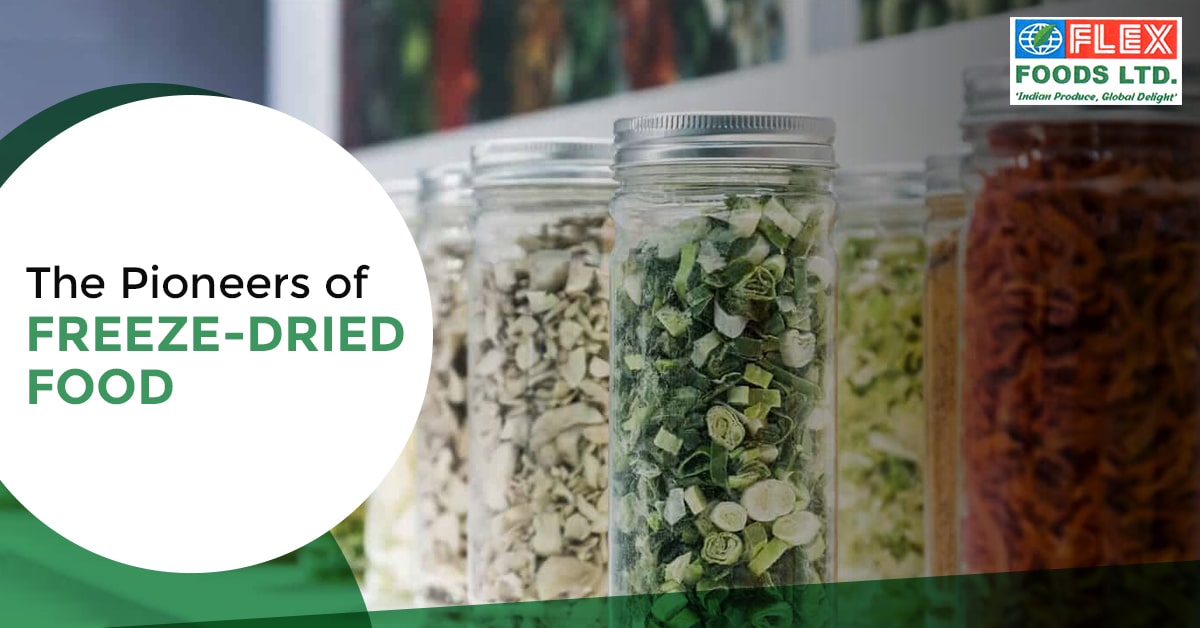Fresh produce exporting to other countries is a difficult and complex undertaking. Even the most seasoned exporters can stumble upon one of the many traps. Exporters need to be aware of the typical errors that can endanger their business since the demand for premium fruits and vegetables is increasing on a global scale.
Insufficient Temperature Control: Keeping IQF frozen vegetables fresh and of high quality during export depends heavily on temperature control. Fast deterioration, spoiling, and large losses may result from a supply chain that is not kept at the ideal temperature. Make sure that dependable temperature monitoring and control systems are installed in your handling procedures, vehicles, and storage facilities. Invest in reefers or specialized refrigerated containers to protect your cargo during long-distance shipping.
Inadequate Packaging and Handling: It's critical to use appropriate packaging to safeguard your produce while it's being exported. Poor packaging can cause the produce to bruise, crush, or sustain other damage that makes it unfit for sale. Use robust well-made containers and to reduce the possibility of mechanical damage think about utilizing protective liners, cushioning materials, and ventilation systems. Provide appropriate handling instructions to your employees to guarantee careful and effective loading, unloading and transportation.
Noncompliance with phytosanitary regulations: International trade in agricultural products is heavily reliant on compliance with phytosanitary regulations. Shipment rejections, delays, and even legal repercussions may result from noncompliance with these standards. Understand the phytosanitary regulations governing the markets you intend to serve and collaborate closely with regulatory bodies to secure the required licenses and certifications. Make certain your produce is free of pests, illnesses, and other impurities that could endanger the agricultural ecosystem of the country you are importing.
Disregarding Documentation and Traceability: Exporting fruits and vegetables successfully depends on thorough documentation and traceability. Keep thorough records of each shipment's origin, cultivation techniques, packaging, and mode of transportation. If problems occur, this information not only makes sure import laws are followed but also makes it easier to conduct quality control checks and product recalls. To expedite the traceability process make use of RFID systems, barcode tracking, and other technological tools.
Insufficient Cold Chain Management: The cold chain which is the continuous process of refrigerated transportation and storage is the foundation of the fresh produce export market. Significant deterioration of shelf life and quality can result from cold chain management errors. To preserve the quality of your produce, dehydrated parsley during the exportation process make the necessary infrastructure investments in temperature-controlled warehouses, refrigerated trucks, and effective monitoring systems.
Insufficient Market Research and Adaptation: Fruit and vegetable exports necessitate a thorough comprehension of the distribution channels, laws, and preferences of the target markets. Unbalanced product offerings, packaging, or marketing tactics can be the consequence of inadequate market research. Make sure your export plan is appropriate for your target markets by carefully examining the demand competition and consumer trends there. Keep a close eye on how the market is changing and be ready to adjust your strategy as necessary.
Inadequate Inspection and Quality Control Procedures: Strict inspection and quality control protocols are essential to guarantee that your customers receive only the best produce. At each stage of the export process from pre-harvest to final delivery, put in place thorough quality assurance procedures. Invest in cutting-edge inspection tools and provide your workers with training on quality assessment methods to find and fix any problems before shipment.
Insufficient Risk Management Planning: Fruit and vegetable exporting carries several risks including disruptions caused by the weather and geopolitical unrest. Your company may be exposed to unforeseen difficulties if you do not have a thorough risk management strategy in place. To effectively respond to any disruptions in your supply chain, plan, create backup plans, and maintain open lines of communication with your partners.
Ineffective Planning of Logistics and Transportation: Successful exporting of perishable fruits and vegetables depends on efficient planning of logistics and transportation. Significant quality and financial losses can result from ineffective planning delays or poor coordination. By picking reputable logistics companies organizing effective shipping routes and guaranteeing on-time customer delivery, you can optimize your logistics.
Ignoring Environmental Practices and Sustainability: Environmental stewardship and sustainability are becoming vital components in fruit and vegetable exports in today's globally aware market. Ignoring these issues could prevent you from entering certain markets and harm the reputation of your company. To satisfy consumer demand for more ecologically friendly products embrace sustainable farming methods, reduce your carbon footprint and use eco-friendly packaging.
You can considerably raise the productivity and profitability of your fruit, air dried herbs in India, and vegetable export business by keeping an eye out for these ten typical errors and taking proactive steps to fix them. Recall that being ahead of the curve constantly adapting to shifting circumstances and placing a premium on quality compliance and customer satisfaction are the keys to succeeding in the cutthroat global market.

